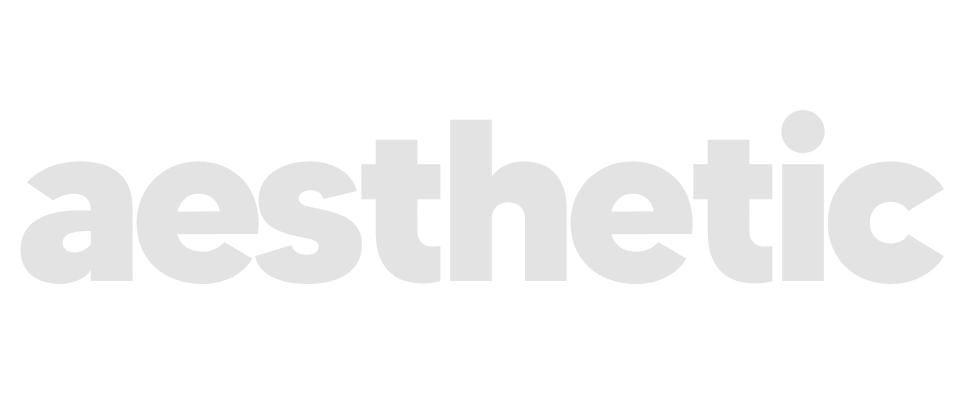Do you need help deciding between custom-built and template websites for your business? You’re not alone. This is a common dilemma for many business owners who want a professional online presence without breaking the bank.
We understand the confusion and anxiety you might be feeling. With years of experience in web development and digital marketing, we’ve seen firsthand the benefits and drawbacks of both approaches. This article aims to provide you with a clear, unbiased cost-benefit analysis, helping you make an informed decision that best suits your business needs and budget.
By the end of this article, you’ll have a comprehensive understanding of both custom web development and template websites. You’ll know the costs involved, the benefits and drawbacks, and the factors to consider in making your decision. Let’s dive in and explore which option will give you the best return on investment.
What’s Inside this Article?
Understanding Custom Web Development
Definition and Overview
Custom web development involves creating a website from scratch, tailored specifically to your business’s unique needs and goals. Unlike template websites, which use pre-designed themes, custom websites are built to your specifications, offering unparalleled flexibility and customisation. This process typically involves working closely with a web developer or a development team to design and develop every aspect of the site, from layout and design to functionality and features.
Costs Involved
Custom web development is generally more expensive than using a template. Here are some of the key costs to consider:
Initial Development
Hiring a professional developer or development team can be costly. Prices vary depending on the complexity of the project, but you can expect to pay anywhere from a few thousand to tens of thousands of dollars.
Design Fees
Custom designs require the skills of a professional designer, adding to the overall cost.
Maintenance and Updates
Ongoing costs include regular maintenance, updates, and potential redesigns to keep the site current and functional.
Hosting and Domain
Custom websites often require more robust hosting solutions, which can be more expensive than basic hosting plans used for template sites.
Benefits and Drawbacks
Benefits:
- Unique Design: Custom websites offer a unique, branded look that stands out from competitors using template designs.
- Tailored Functionality: Custom development allows for bespoke features and functionalities tailored to your specific business needs.
- Scalability: As your business grows, your custom website can be scaled and adapted more easily than a template site.
- Enhanced SEO: Custom websites can be optimised more effectively for search engines, potentially improving your site’s visibility and ranking.
Drawbacks:
- Higher Costs: The most significant drawback is the higher initial and ongoing costs.
- Longer Development Time: Building a custom website takes more time than setting up a template site. It requires careful planning, design, development, and testing.
- Complex Process: The development process can be complex and requires clear communication and coordination with your development team.
Suitable Use Cases
Custom web development is ideal for businesses with specific needs that cannot be met by a template. This includes:
E-commerce Sites
Businesses that require complex e-commerce functionalities and custom integrations.
Brands Seeking Unique Design
Companies that want a distinctive online presence that reflects their brand identity.
Large Enterprises
Organisations with extensive content and functionality requirements need a scalable solution.
Specialised Services
Businesses offering unique services that require customised user interfaces and experiences.
By understanding the ins and outs of custom web development, you can better assess whether it’s the right choice for your business.
Understanding Template Websites
Definition and Overview
Template websites are pre-designed website frameworks that allow you to quickly set up and customise a site using a visual editor. These templates are often available through website builders like WordPress, Wix, or Squarespace. They come with a variety of themes and layouts, which can be tailored to match your branding to some extent, making them a popular choice for businesses looking for a quick and cost-effective web solution.
Cost Comparison
When deciding between custom web development and template websites, understanding the financial implications is crucial. Here’s a detailed comparison of the costs involved, using AUD for all values.
Initial Setup Costs
Custom Web Development:
- Development Fees: Hiring a professional developer or a development team can cost anywhere from $3,000 to $20,000+ AUD, depending on the complexity and scope of the project.
- Design Fees: Custom designs typically require a professional designer, adding another $1,000 to $5,000 AUD to the overall cost.
- Hosting and Domain: Custom websites often need more robust hosting solutions, costing around $20 to $100 AUD per month. Domain registration usually costs about $15 to $50 AUD per year.
Template Websites:
- Template and Setup Fees: Basic templates might be free or cost up to $200 AUD. Premium templates and additional features can range from $50 to $500 AUD.
- Subscription Fees: Most website builders charge a monthly or annual fee. Expect to pay between $10 and $70 AUD per month, which typically includes hosting, support, and access to design tools.
- Add-Ons and Plugins: Premium plugins or add-ons can add another $50 to $200 AUD to your costs, depending on your needs.
Maintenance and Updates
Custom Web Development:
- Ongoing Maintenance: Regular maintenance and updates can cost between $500 to $2,000 AUD per year, depending on the complexity of the site and the frequency of updates needed.
- Redesigns and Upgrades: As your business grows, you might need to invest in redesigns or feature upgrades. These costs can vary widely but typically range from $1,000 to $10,000+ AUD.
Template Websites:
- Ongoing Subscription Fees: Continued use of the website builder platform incurs monthly or annual fees, ranging from $120 to $840 AUD per year.
- Updates and Add-Ons: While many updates are included in the subscription fees, some premium features or major updates might incur additional costs, usually between $50 to $300 AUD annually.
Long-Term Investment Considerations
Custom Web Development:
- Higher Initial Investment: Custom development requires a significant upfront investment but offers greater flexibility and scalability.
- Lower Long-Term Costs: Over time, the costs of maintaining a custom website can be lower compared to the cumulative subscription fees of template websites, especially if major redesigns or feature upgrades are infrequent.
Template Websites:
- Lower Initial Investment: Template websites are more affordable initially, making them accessible to businesses with limited budgets.
- Potentially Higher Long-Term Costs: Ongoing subscription fees and potential add-on costs can add up over time, potentially making template websites more expensive in the long run if used for several years.
By comparing the costs involved in custom web development and template websites, you can better understand which option fits your budget and long-term business goals.
Benefit Analysis
To make an informed decision between custom web development and template websites, it’s essential to understand the benefits each option offers. Here, we’ll explore flexibility, SEO and performance, user experience, and design.
Flexibility and Customisation
Custom Web Development:
- Bespoke Design and Functionality: Custom websites are built from the ground up to meet your specific needs, offering unique designs and tailored functionalities. This ensures your site aligns perfectly with your brand and business goals.
- Scalability: As your business grows, a custom website can be easily scaled and adapted to accommodate new features, more content, or increased traffic. This flexibility makes it an excellent long-term investment.
- Full Control: With custom development, you have full control over every aspect of your website, from design elements to backend functionalities. This allows for precise adjustments and improvements as needed.
Template Websites:
- Ease of Use: Templates come with predefined layouts and functionalities, making it easy to set up a website quickly without technical expertise.
- Customisation Options: While limited compared to custom development, many templates offer a range of customisation options through drag-and-drop editors and adjustable settings. This allows you to personalise your site to some extent.
- Quick Modifications: Template websites allow for rapid modifications and updates, making them suitable for businesses that need to adapt their site frequently.
SEO and Performance
Custom Web Development:
- Enhanced SEO: Custom websites can be optimised for search engines more effectively. Developers can implement best practices for SEO, ensuring your site ranks higher in search results.
- Performance Optimisation: Custom sites can be fine-tuned for speed and performance, providing a better user experience and potentially improving search engine rankings.
- Advanced Analytics: Custom development allows for the integration of advanced analytics tools, giving you deeper insights into your website’s performance and user behaviour.
Template Websites:
- Built-In SEO Tools: Many website builders include built-in SEO tools, making it easier to optimise your site without needing extensive technical knowledge.
- Responsive Design: Most templates are designed to be responsive, ensuring your site looks good and performs well on all devices.
- Performance Limitations: While templates are generally optimised for performance, they might not offer the same level of fine-tuning as custom websites. This can impact load times and overall user experience, especially for complex sites.
User Experience and Design
Custom Web Development:
- Unique User Experience: Custom websites can be designed to provide a unique and seamless user experience, tailored to your target audience’s preferences and behaviours.
- Advanced Features: You can incorporate advanced features and functionalities, such as custom forms, interactive elements, and complex navigation structures, to enhance user engagement.
- Brand Consistency: A custom site ensures that every design element aligns with your brand identity, creating a cohesive and professional look.
Template Websites:
- Professional Design: Many templates are professionally designed and offer aesthetically pleasing layouts that can give your site a polished appearance.
- User-Friendly Interfaces: Template websites often feature user-friendly interfaces that simplify navigation and enhance the user experience.
- Limited Uniqueness: While templates provide a professional look, they might lack the uniqueness of custom sites, making it harder to differentiate your brand from competitors.
Making the Decision
Deciding between custom web development and template websites depends on several factors unique to your business. Here, we’ll guide you through the critical considerations to help you make an informed choice.
Factors to Consider
Budget
- Custom Web Development: Requires a higher initial investment. Ideal if you have a larger budget and can afford ongoing maintenance and updates.
- Template Websites: More affordable upfront. Suitable for businesses with limited budgets or those looking to minimise initial costs.
Timeframe
- Custom Web Development: Takes longer to design, develop, and launch. Best if you have a flexible timeline and can wait for a more tailored solution.
- Template Websites: Quick to set up and launch. Perfect for businesses needing a fast online presence.
Complexity and Specific Needs
- Custom Web Development: Offers bespoke features and functionalities tailored to your specific needs. Ideal for businesses with unique requirements that cannot be met by templates.
- Template Websites: Provides basic functionalities suitable for simpler needs. Great for straightforward projects with standard features.
Scalability
Custom Web Development: Highly scalable and adaptable. Best for businesses planning significant growth and requiring a website that can evolve with them.
Template Websites: Limited scalability. Suitable for businesses that do not anticipate extensive growth or complex needs soon.
Brand Identity
- Custom Web Development: Allows for a unique, branded online presence. Essential for businesses that prioritise a distinctive look and feel.
- Template Websites: Offers professional but potentially less unique designs. Works for businesses where brand differentiation is not a top priority.
Questions to Ask Yourself
- What is my budget for initial setup and ongoing maintenance?
- If your budget is tight, a template website might be more practical. If you can invest more, a custom website offers long-term benefits.
- How quickly do I need my website to be up and running?
- If you need a quick solution, templates are the way to go. If you have time, custom development can provide a more tailored solution.
- Do I have specific features or functionalities that templates might not offer?
- Custom development is necessary for unique needs. Templates work well for standard requirements.
- How important is a unique design to my brand?
- Custom development ensures a unique design that stands out. Templates provide a professional look but may lack uniqueness.
- What are my long-term plans for my website?
- Consider custom development if you anticipate growth and the need for scalability. Templates are fine for stable, simpler needs.
Final Recommendations
For Startups and Small Businesses
If you’re just starting and need a professional online presence quickly and affordably, a template website is a great choice. It allows you to get online fast without a hefty investment.
For Established Businesses and Enterprises
If you have the budget and require a website that can scale with your business, invest in custom web development. It offers the flexibility and bespoke features that will serve you well in the long run.
For Businesses in Transition
If you currently use a template website but find it limiting as you grow, consider transitioning to a custom website. The initial investment will be justified by the enhanced functionalities and better user experience.
By weighing these factors and asking the right questions, you can make a well-informed decision that aligns with your business goals and budget.
Moving Forward,
Choosing between custom web development and template websites is a significant decision that impacts your business’s online presence and growth. Here’s a quick recap of what we’ve covered:
Custom Web Development:
Offers bespoke design, tailored functionalities, and scalability, but comes with higher costs and longer development times.
Template Websites:
Provide a cost-effective, quick-to-launch solution with professional designs, but may lack uniqueness and advanced customisation.
Ultimately, the best choice depends on your specific needs, budget, and long-term goals. Take the time to evaluate your options, consider the factors discussed, and make a decision that will best serve your business now and in the future.
Remember, your website is a crucial tool for connecting with your audience and growing your business. Whether you choose a custom-built site or a template, ensure it reflects your brand, meets your needs, and offers a positive user experience.
Good luck with your decision, and here’s to your success in creating a powerful online presence! For further insights and guidance on web design, you might find these blogs particularly helpful: Squarespace vs. WordPress: Which Is Better for SEO? In-Depth Review of Framer for Building Functional and Responsive Websites




